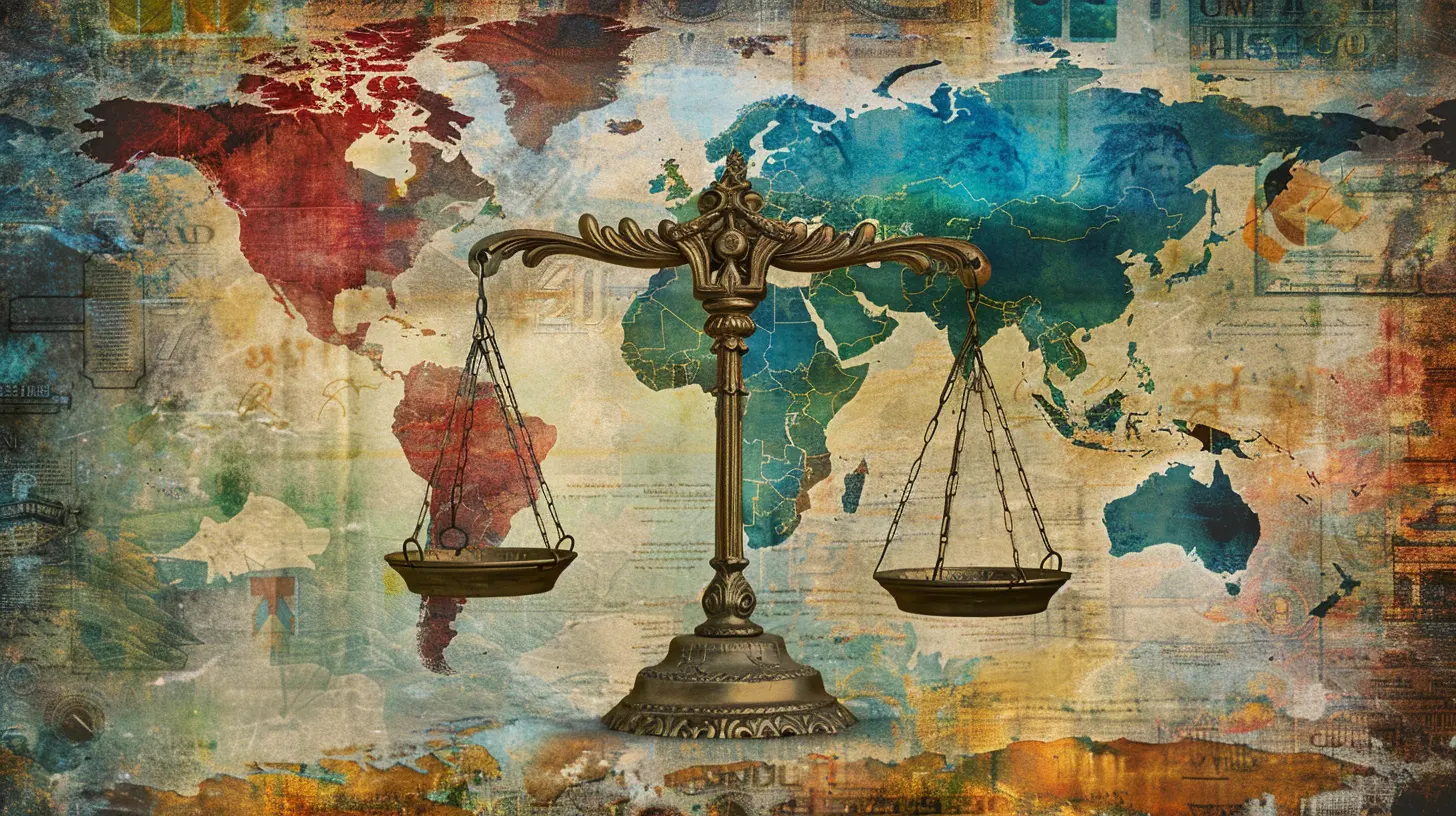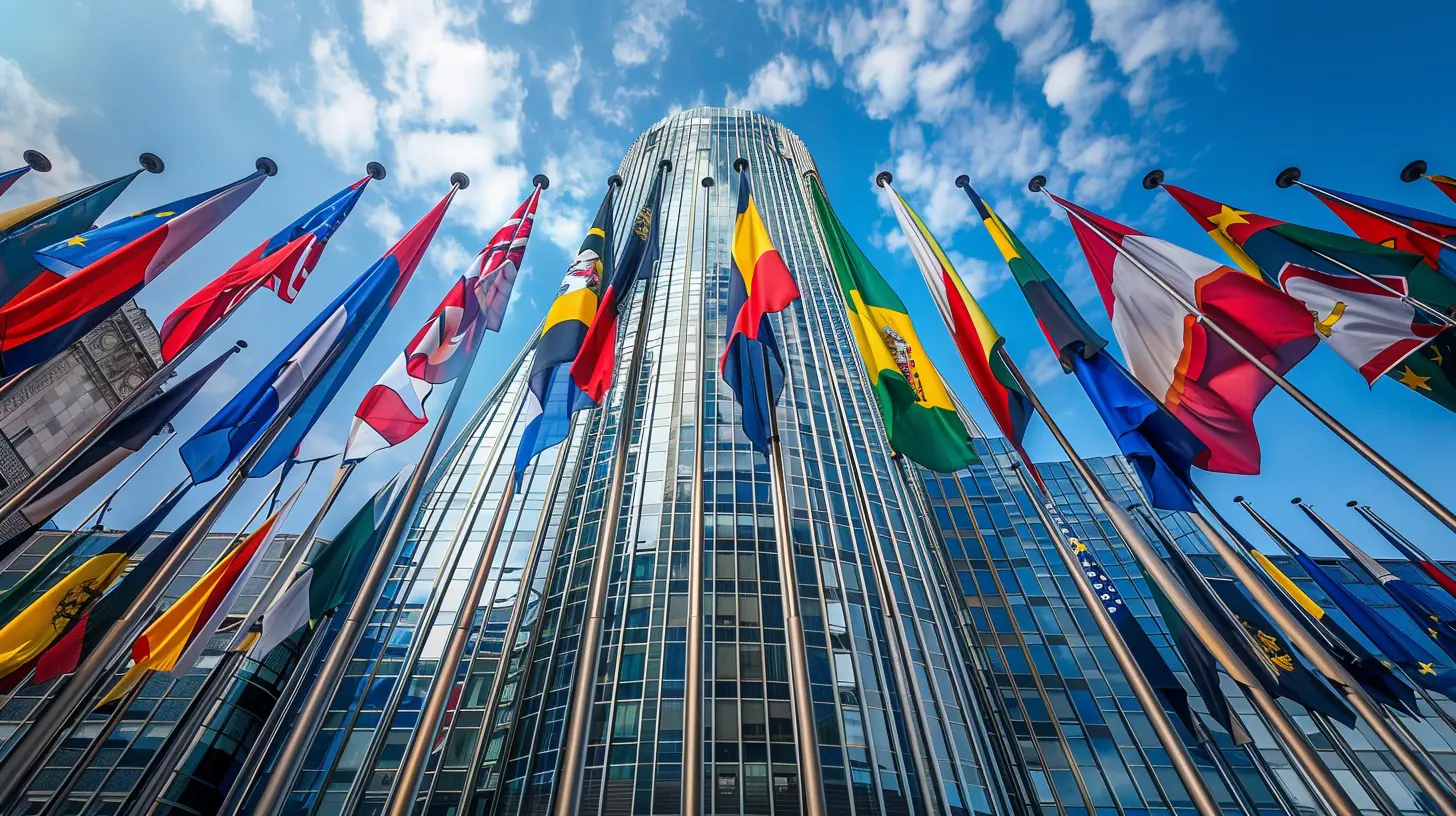25 December 2024
When it comes to maintaining order in the ever-evolving and complex world of global finance, international financial institutions play a pivotal role. Think of them as the referees in an intense soccer game—setting the rules, blowing the whistle when there’s a foul, and ensuring that everyone plays fair on the global field. But what exactly do these organizations do, and how do they help keep the world’s financial systems regulated? Well, grab a cup of coffee, and let’s dive into this fascinating topic in plain and simple terms.
What Are International Financial Institutions?
Before we get into the nitty-gritty, let’s make sure we’re all on the same page. International financial institutions (or IFIs, for short) are organizations that work across borders to foster economic development, stabilize markets, and promote global financial cooperation. Some of the big players you’ve probably heard of include the International Monetary Fund (IMF), the World Bank, and the Bank for International Settlements (BIS).Imagine these organizations as the glue that holds the global economy together. Without them, we’d have a lot of confusion, chaos, and potentially catastrophic financial crises. They’re the ones who step in to mediate disputes, provide financial safety nets, and ensure that economies are growing sustainably.
Why Do We Need Global Financial Regulation?
Here’s a question for you: what happens when there aren’t clear rules in a game? Total chaos, right? That’s exactly why financial regulation is critical. Let’s face it, the global economy is interconnected. A financial hiccup in one country can ripple across borders and affect economies worldwide. Remember the 2008 financial crisis? It’s a prime example of how fragile and interconnected our financial systems are.Global financial regulation ensures that everyone is playing by the same rules—whether they’re in London, Tokyo, or Buenos Aires. Without regulation, we’d be living in a financial Wild West, full of risky behavior, shady deals, and inevitable crises. International financial institutions step in to make sure this doesn’t happen.
How Do International Financial Institutions Contribute to Global Regulation?
Now that we’ve set the stage, let’s talk specifics. How do these organizations actually make a difference? Here’s a breakdown of their main contributions:1. Setting Global Standards
First off, IFIs are like the architects of global finance—they design the frameworks and set the standards that countries and financial institutions follow. For instance, the Basel Committee on Banking Supervision, which operates under the Bank for International Settlements, develops guidelines to ensure banks have enough capital to withstand economic shocks. These frameworks help create consistency and trust in the global financial system.Think about it like this: if every country played by different financial rules, it would be like trying to play Monopoly with four people who all brought their own made-up rulebooks. It wouldn’t end well, right? Global standards ensure that everyone is on the same page.
2. Monitoring Compliance
Setting the rules is one thing; making sure people actually follow them is an entirely different ball game. International financial institutions have systems in place to monitor whether countries and financial institutions are sticking to the agreed-upon regulations.For instance, the IMF regularly conducts what’s known as the Article IV consultations to assess the economic health and policies of its member countries. Think of it as an annual check-up for a country’s economy. If something looks off, the IMF can provide recommendations or raise red flags before things spiral out of control.
3. Providing Financial Assistance
Sometimes, countries face economic crises that they can’t handle on their own. When this happens, IFIs often step in like financial first responders. The IMF, for example, provides loans to countries facing balance-of-payment problems, helping them stabilize their economies and avoid financial collapse.But, let’s be real: these loans often come with strings attached, like requiring the country to implement certain economic reforms. It’s a bit like borrowing money from a strict parent who insists you tidy up your room before you get your allowance.
4. Facilitating Cooperation
It’s not just about enforcing rules and handing out loans. A huge part of what IFIs do is foster cooperation and dialogue among countries. They provide a platform for global discussions on key economic issues—whether it’s climate finance, poverty reduction, or managing debt in developing nations.For example, the World Bank works closely with governments and other stakeholders to fund projects that promote economic development. From building infrastructure in Africa to improving education systems in Southeast Asia, the World Bank helps bring countries together to solve shared problems.
5. Managing Systemic Risks
If you’ve ever seen someone defuse a bomb in a movie, you know that timing and precision are everything. IFIs have a similar job when it comes to managing risks in the global financial system. They identify potential dangers—whether it’s a housing bubble, currency fluctuations, or geopolitical tensions—and work to defuse them before they explode.The Financial Stability Board (FSB) is one such organization that focuses on identifying vulnerabilities in the global financial system and recommending ways to address them. Think of it as the watchdog that keeps a keen eye on the horizon for any approaching storms.
Criticisms of International Financial Institutions
Of course, no institution is perfect, and international financial institutions have their fair share of critics. Some argue that these organizations are too focused on the interests of wealthy nations, leaving developing countries at a disadvantage. Others believe that the conditions attached to loans—like implementing austerity measures—can sometimes do more harm than good.So, are IFIs like the superhero of global finance, or are they sometimes the villain? Well, it depends on who you ask. But one thing’s for sure: the role they play in maintaining global financial stability is absolutely crucial.
The Future of Global Financial Regulation
As the world becomes more interconnected, the challenges faced by international financial institutions are only going to get more complex. From the rise of cryptocurrencies to the growing threat of climate change, there’s no shortage of issues for these organizations to tackle.Will they rise to the occasion and adapt to the changing financial landscape, or will new players step in to fill the gaps? Only time will tell. But one thing we know for sure is that global financial regulation will remain as important as ever.
Final Thoughts
So, there you have it—the role of international financial institutions in global regulation. They’re the unsung heroes (and sometimes controversial figures) working behind the scenes to keep the global economy running smoothly. Without them, we’d be living in financial chaos, with no one to step in when things go wrong.Sure, they’re not perfect, and there’s always room for improvement. But at the end of the day, their work is absolutely essential in our interconnected world. And hey, the next time you hear about the IMF or World Bank in the news, you’ll know exactly what they’re up to.












Aiden Miller
Thank you for this insightful article! It effectively highlights the critical role of international financial institutions in shaping global regulation. Their influence on financial stability and economic growth is essential for fostering a more interconnected and resilient global economy.
February 11, 2025 at 8:45 PM